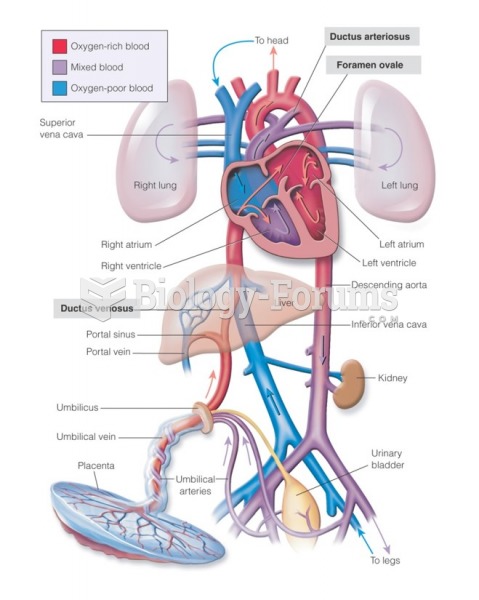|
|
|
As the western states of America were settled, pioneers often had to drink rancid water from ponds and other sources. This often resulted in chronic diarrhea, causing many cases of dehydration and death that could have been avoided if clean water had been available.
According to the CDC, approximately 31.7% of the U.S. population has high low-density lipoprotein (LDL) or "bad cholesterol" levels.
Astigmatism is the most common vision problem. It may accompany nearsightedness or farsightedness. It is usually caused by an irregularly shaped cornea, but sometimes it is the result of an irregularly shaped lens. Either type can be corrected by eyeglasses, contact lenses, or refractive surgery.
As of mid-2016, 18.2 million people were receiving advanced retroviral therapy (ART) worldwide. This represents between 43–50% of the 34–39.8 million people living with HIV.
The oldest recorded age was 122. Madame Jeanne Calment was born in France in 1875 and died in 1997. She was a vegetarian and loved olive oil, port wine, and chocolate.
 When the United States gets stuck over a controversial issue—usually something a divided Congress ca
When the United States gets stuck over a controversial issue—usually something a divided Congress ca
 A strike by 800 women shoemakers in Lynn, Massachusetts, in 1860. In 1851 a Lynn shoemaker had adapt
A strike by 800 women shoemakers in Lynn, Massachusetts, in 1860. In 1851 a Lynn shoemaker had adapt





